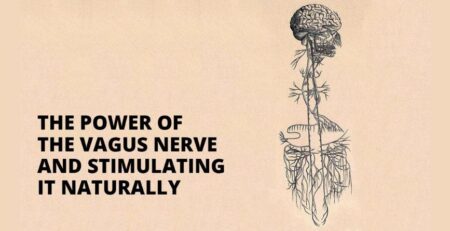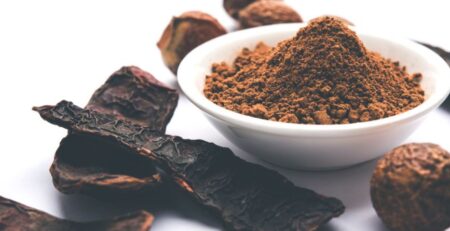The Silent Culprit: Low Testosterone in Men and Women
Is Low Testosterone to Blame for Your Health Issues?
Struggling with low sex drive, stubborn belly fat, or fatigue that won’t quit? You’re not alone. Low testosterone levels could be behind many of these common problems for both men and women. In fact, testosterone plays a crucial role beyond sexual health, influencing everything from muscle growth to immunity. Let’s dive into how testosterone impacts your body and what you can do about it.
The Silent Culprit: Low Testosterone in Men and Women
Testosterone is often associated with masculinity and sex drive, but its influence stretches far beyond that. Whether you’re dealing with unexplained fatigue, weak bones, or muscle loss despite regular workouts, low testosterone might be the root cause.
- Low sex drive? You can blame stress or a busy lifestyle, but without healthy testosterone levels, your sexual urges naturally decline.
- Struggling to build muscle? Testosterone is key for muscle development, which is essential not only for aesthetics but also for metabolic health and longevity.
- Stubborn belly fat? Low testosterone levels can make it harder to maintain a healthy muscle-to-fat ratio, leading to increased fat storage.
- Weak bones? Testosterone plays a pivotal role in maintaining bone density, for both men and women.
For women, testosterone combines with estrogen to maintain reproductive health, build bone density, and regulate mood throughout the menstrual cycle, pregnancy, and menopause. For men, low testosterone can affect sperm production, leading to fertility issues.
The Impact of Low Testosterone
When your testosterone levels dip, the effects ripple across your body:
- Higher body fat and lower lean muscle mass
- Slower metabolism
- Decreased immunity due to lower red blood cell production
Smartly planned strength and aerobic exercises done 5 days a week can significantly bump testosterone levels, bringing you back to feeling strong, lean, and energized.

Common Testosterone Depleters in Modern Life
In today’s fast-paced world, several factors can drain your testosterone levels:
- Binge drinking
- Smoking and vaping
- Fad dieting
- Sleep deprivation
- Chronic stress
- A sedentary lifestyle
These habits can sabotage your hormone levels, leading to a cascade of health issues.
Boosting Testosterone Naturally
Here’s the good news: boosting testosterone doesn’t have to be complicated or expensive. A few simple lifestyle tweaks can make a world of difference:
- Exercise: High-intensity interval training (HIIT) and weight training (bodyweight exercises, dumbbells, resistance bands) are effective ways to increase testosterone.
- Yoga: Incorporating intensity and holds can also stimulate testosterone production.
- Sleep: Deep, restorative sleep is crucial for hormonal balance.
- Diet: Focus on eating enough good carbs, fats, and proteins that work for your body.
- Manage stress: Find ways to diffuse chronic stress, whether through meditation, therapy, or relaxation techniques.
- Fix vitamin deficiencies: Low vitamin D3, which acts as a sex hormone, can affect testosterone levels. Aim for 15-20 minutes of sun exposure daily or opt for an infrared sauna if you live in a colder climate.
Nutrients That Support Testosterone Production
Certain nutrients play a crucial role in boosting testosterone levels:
- Zinc
- Magnesium
- Boron
- Omega-3 fatty acids
Power Foods for Testosterone
Some foods are scientifically proven to help boost testosterone:
- Nuts and seeds
- Raw honey (known to stimulate testosterone production)
- Dark chocolate (80% or higher)**
- Cherries and pomegranates
- Spinach
- Extra virgin olive oil
- Fenugreek
- Onions
- Berries
- Whole eggs
- Shellfish, prawns, mussels, lobster, oysters, beef steak, and fatty fish
- Testosterone Beyond Sexual Health
Whether you’re sexually active or not, young or old, testosterone plays a vital role in:
- Bone health
- Sex drive
- Fertility
- Muscle mass
- Metabolism
- Energy levels
- Mental clarity
- Immunity
Top Questions About Testosterone
Some of the most common questions we get are:
“How can I boost my libido?”
“How do I cure erectile dysfunction?”
“How do I burn stubborn belly fat?”
“Why am I not gaining muscle despite working out daily?”

In most cases, the answers to these can be traced back to hormonal health—specifically testosterone levels. Hormones control almost everything in our body, from mood to metabolism. Maintaining healthy testosterone levels is critical for overall well-being.
Detecting Low Testosterone Levels
Low testosterone can be detected through a simple blood test. It’s worth checking your levels before diving into fad diets or quick fixes, which can make you overlook the root cause of your problems.
Testosterone Is for Everyone
Whether you’re in your 20s or 70s, testosterone matters. It impacts much more than just your sexual health—it’s essential for staying strong, lean, and energized throughout life. Luckily, boosting your testosterone can be as simple as incorporating the right foods and habits into your daily routine.
Testosterone plays a crucial role in keeping you healthy, energized, and fit. And the best part? It doesn’t cost much to start boosting your levels. Maybe just a few dollars for raw honey, fruits, and nuts—and the rest is absolutely free!
Disclaimer: Please make an informed decision before trying anything new. None of what’s shared here is a replacement for any ongoing medical procedure, medicines, or advice given by your doctor or healthcare provider.
|
From a pimple to cancer, our You Care Wellness Program helps you find a way Talk to our integrative team of experts today 18001020253 |











Leave a Reply